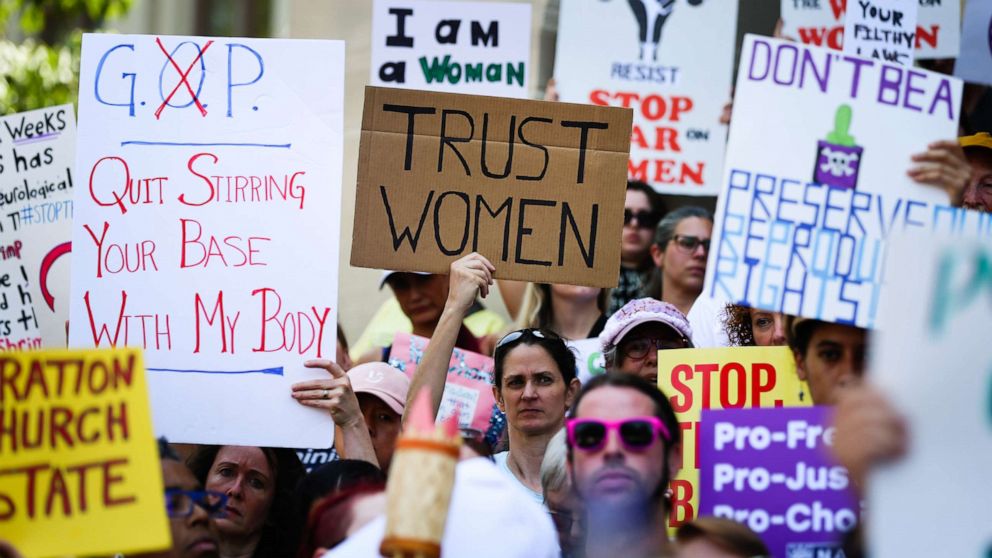
Edmund Burke once said, “People crushed by laws, have no hope but to evade power. If the laws are their enemies, they will be enemies to the law; and those who have most to hope and nothing to lose will always be dangerous.”
By the grace of God, as a society we have not reached that level of despair amid the present global pandemic. That does not mean, however, that morally-inclined people will not fight the injustice of politicians, especially when they seek to separate from God and from each other, as many of our politicians have sought to do during the coronavirus lock-down.
Such was the case when Bishop Joseph Coffey, an auxiliary bishop for the Roman Catholic Archdiocese for the Military Services, defied Maryland Governor Larry Hogan’s stay-at-home order during a pro-life prayer. Accompanied by fifty pro-lifers, Bishop Coffey led the Stations of the Cross nearby both the Maryland State House and Governor’s Mansion. They called on Hogan to shut down all of the state’s abortion centers during the COVID-19 pandemic. Hogan, who is Catholic, has ensured that abortion providers are allowed to continue operating during the pandemic, signaling that the Republican governor views abortion as an essential procedure.
As reported by LifeSiteNews, Maryland Capitol Police officers approached the group and explained they were there to enforce the governor’s executive order banning gatherings of more than ten people; they had already been practicing social distancing when the police arrived. Despite calling attention to the unconstitutionality of the ban, the police were unmoved and threatened the bishop and the pro-lifers with arrest and a $5,000 fine. They hastened to complete the Stations of the Cross and then disbanded.
The Maryland case is reflective of the religious discrimination by elected officials which is clearly unconstitutional. While politicians have in the past shown contempt for anyone who professes a belief in God—Christians, in particular—it seems that their discriminatory actions have become more prevalent during the coronavirus lock-down. In Indiana, for example, Governor Eric Holcomb has dictated to priests how to administer the Sacrament of Holy Communion, while other governors have banned its reception altogether.
These examples remind us of the religious persecution that occurred in communist countries during the Soviet era. In some ways, they are worse, for at least certain churches, albeit under state police surveillance, were allowed to carry out religious services during that time.
Who in America would ever have thought that such religious suppression would exist in our country?
In New York City, Mayor Bill de Blasio warned that a “small number of religious communities, specific churches, and specific synagogues are unfortunately not paying attention to this guidance even though it’s so widespread… If you go to your synagogue, if you go to your church and attempt to hold services after having been told so often not to, our enforcement agents will have no choice but to shut down those services.”
The mayor said that city staff members have been instructed to break up church services and to ”take additional action up to the point of fines and potentially closing the building permanently” if worshipers do not comply.
The suppression of freedom to practice religion is not just an American problem, but a European one, too.
For those who have not heard, in the Italian diocese of Cremona, the carabinieri—state military—entered and sought to stop a Mass being celebrated with about a dozen parishioners who were observing social distancing, notwithstanding article 405 of the Italian penal code that prohibits any interruption of the Holy Mass.
One would think that the celebrant, Father Lino Viola, would have been backed up by his bishop. Instead, the Bishop of Cremona distanced himself from the priest’s actions, issuing a statement that said: “With regard to the matter, the Diocese of Cremona, while aware of the intimate suffering and profound discomfort of so many priests and faithful due to the forced and prolonged deprivation of the Eucharist, we cannot but emphasize with regret that the behavior of the parish priest is in contradiction with civil norms and canonical indications that for several weeks now have been affecting the liturgical and sacramental life of the Church in Italy and of our Church of Cremona.”
People throughout the civilized world have realized in the present COVID-19 pandemic that certain individual freedoms, such as peacefully assembling in public, need to be temporarily sacrificed in order to preserve human life. Heads of governments have had to declare for themselves emergency powers so that they may take measures outside the regular law. This is a reality, whether we like it or not.
It seems, however, that under what Thomas Hobbes in his Leviathan called “self-preservation”: we’ve been forced to accept an absolute version of the Hobbesian social doctrine in which man “shall think it necessary, to lay down [his] right to all things.” Hobbes explained that the forfeiting of such rights is contingent on whether or not the legitimate political authority can effectively protect those from an aggressor—in our case, the coronavirus. That being said, it’s one thing to protect; it’s another thing to strip us of our freedom of religion.
Edmund Burke also said, “Whatever disunites man from God, also disunites man from man.” And this is the vision—”divide and conquer”—our elected officials appear to be advancing, with the goal of demonstrating that our inalienable rights come from them and not our Creator. Fortunately, there are those who—in their refusal to submit to the secular agenda of civil authorities, like the martyrs of our Church—will not only testify that they must “render unto God the things that are God’s,” but will encourage others to do likewise.



